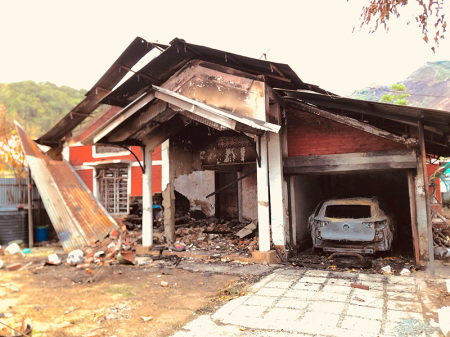Violence against tribal Christians in Manipur escalates despite military interventions; over 131 killed

INDIA — Violence against the tribal Christian Kuki-Zo community in Northeast India's Manipur state has escalated despite military interventions since its onset on May 3. The conflict has recently claimed eight more lives and left 29 injured. To date, 131 Kuki-Zo Christians have been killed, with 200 of their villages and over 360 of their churches either burned or destroyed.
The latest incidents occurred in the border areas between Bishnupur district, which is home to the Hindu majority Meitei community, and Churachandpur district, where Kuki-Zo Christians live, according to The Print, which said the deceased include four from each community.
Kuki-Zo leaders told The Christian Post that people from the Meitei community are being killed only when they enter tribal areas to initiate deadly assaults.
The violence erupted in Manipur following a controversial court order for the state to consider extending special economic benefits and quotas, previously reserved for the tribal Kuki-Zo people, to the Meitei population. It would also give the state government-backed Meiteis the right to buy land in the hills where the Kuki-Zo people live.
The government has deployed about 50,000 soldiers, armed police and other security personnel to enforce buffer zones between the two communities. Despite these measures, mobs have looted more than 4,000 weapons and half a million rounds of ammunition from police in Manipur, according to official estimates.
Lt. General P.C. Nair, director general of the federal paramilitary force Assam Rifles, described the situation as “unprecedented,” highlighting the “large number of weapons” within both communities as a key concern, according to The Wire. “Mobs surrounding forces, women blocking roads are new hurdles for the force trained to fight armed insurgents,” he said.
Nair added, “We are here only to curtail the levels of violence. … But more importantly, we are talking to multiple civil society organizations and various stakeholders to get them to hold talks.”
The Supreme Court of India also remarked that there was “no law and order left in Manipur.”
Cases of violence have been shifted to courts in Assam. The state police’s role in controlling violence and allowing the “looting” of armories has been criticized.
More than 131 people from the Kuki-Zo community have been killed, and their 200 villages, 7,000 houses and 360 churches have been destroyed or burned, according to the Indigenous Tribal Leaders’ Forum, which says at least 41,425 people remain displaced.
However, the bodies of only 35 victims are in hospitals in the Kuki-Zo Churachandpur district, which the local people have named Lamka. Dozens of bodies are lying in hospitals in the Meitei-dominated Imphal area, where the majority of the Kuki-Zo victims were killed during the initial days of violence.
A tribal leader told CP earlier that the mass burial of the deceased Kuki-Zo people would be conducted after the bodies lying in Imphal were transported to Churachandpur.
The Hindu nationalist Bharatiya Janata Party governs both Manipur and the federal government.
In July, the European Parliament passed a resolution urging the Indian government to urgently restore peace in Manipur.
“There have been concerns about politically motivated, divisive policies promoting Hindu majoritarianism, and about an increase in activity by militant groups,” the resolution stated. There are also “accounts of partisan involvement by security forces in the killings have increased distrust in the authorities.”





















